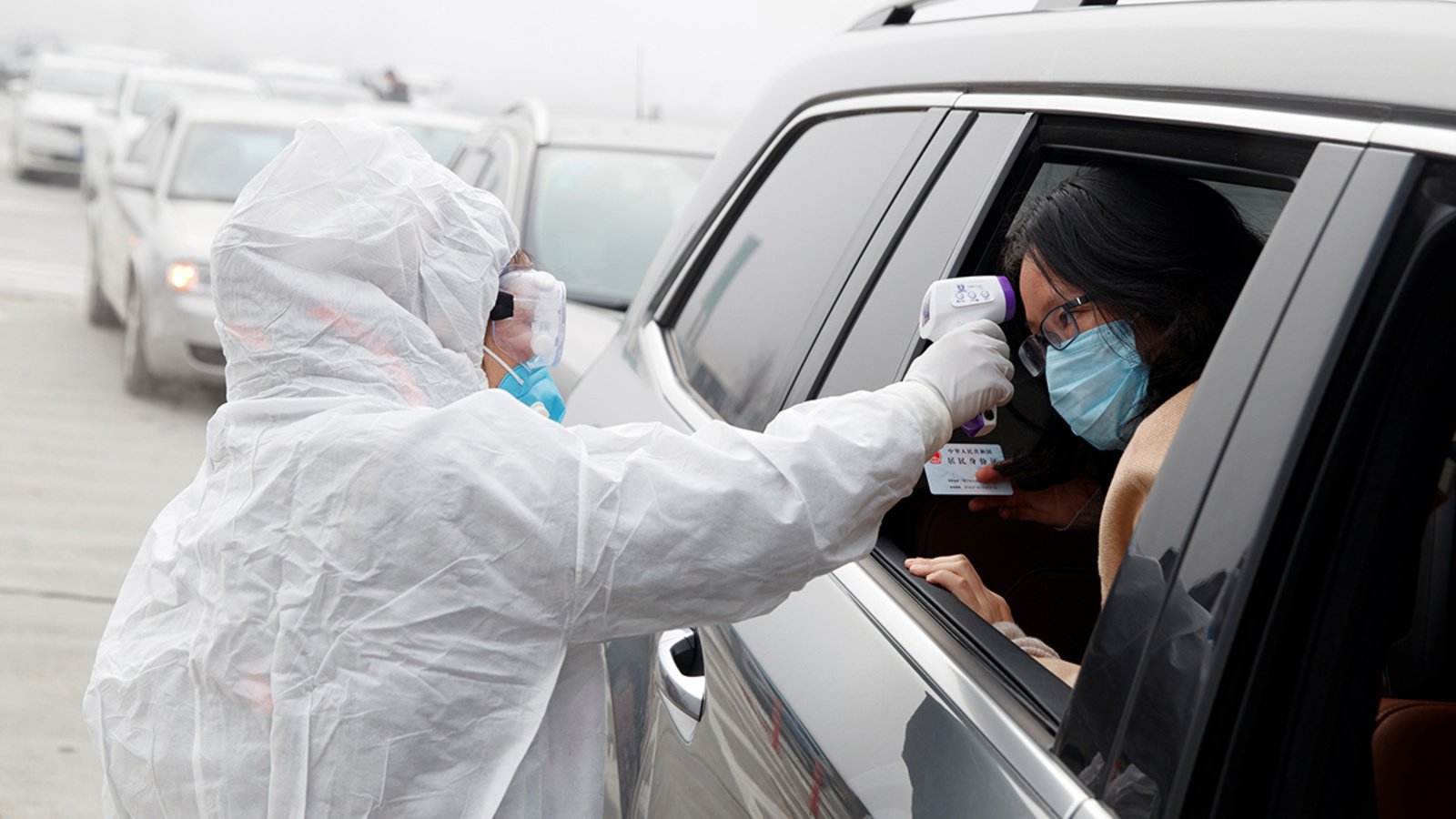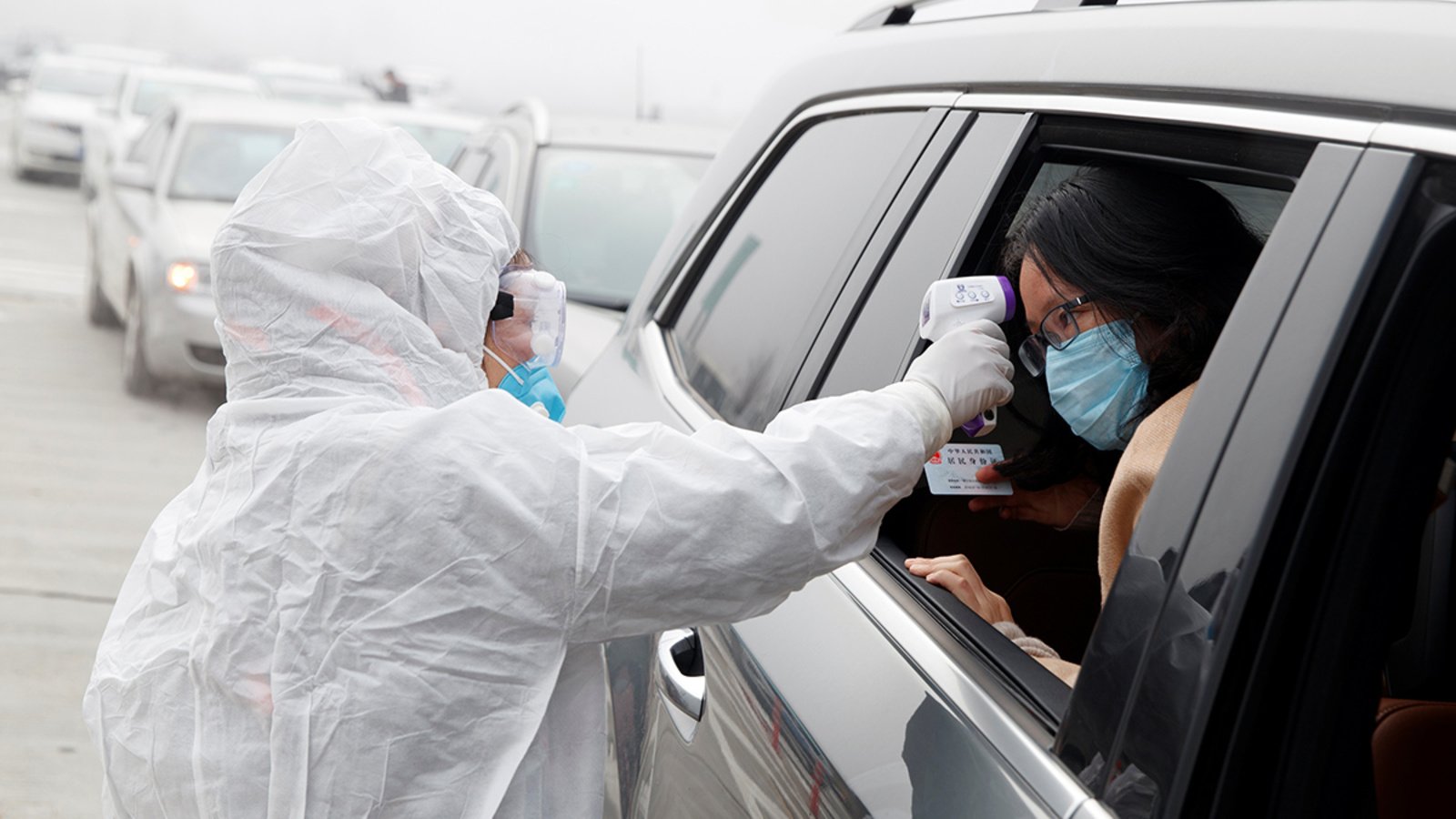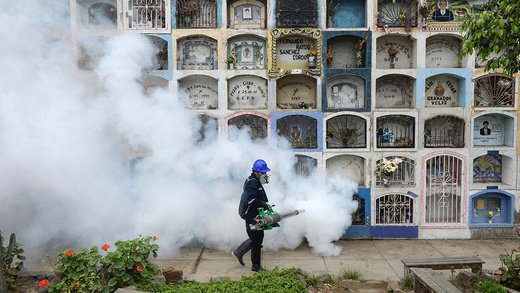The World Health Organization (WHO) is the UN agency charged with spearheading international public health efforts. In its seventy-year life, the WHO has logged both successes, such as eradicating smallpox, and perceived failures, such as its delayed response to the Ebola outbreak in 2014.
In response, the WHO has undertaken reforms to improve its ability to fight future epidemics and boost the health of the hundreds of millions of people still living in extreme poverty. However, a rigid bureaucracy and an increasingly troublesome budget could impede reforms. Meanwhile, the 2020 coronavirus pandemic has emerged as a monumental challenge for the health agency, sparking fresh debate over its effectiveness and leading President Donald J. Trump to announce a total U.S. withdrawal from the body.
Why was the WHO established?
More on:
World Health Organization (WHO)
Created in 1948 as part of the United Nations, the WHO has a broad mandate to guide and coordinate international health policy. Its primary activities include developing partnerships with other global health initiatives, conducting research, setting norms, providing technical support, and monitoring health trends around the world. Over the decades, the WHO’s remit has expanded from its original focus on women’s and children’s health, nutrition, sanitation, and fighting malaria and tuberculosis.
What does the WHO do?
Today, the WHO monitors and coordinates activities concerning many health-related issues, including genetically modified foods, climate change, tobacco and drug use, and road safety. The WHO is also an arbiter of norms and best practices. Since 1977, the organization has maintained a list of essential medicines it encourages hospitals to stock. The WHO has since made a similar list of diagnostic tests, and it has plans to add devices, such as X-ray and ultrasound machines.
Some of the WHO’s most lauded successes [PDF] include its child vaccination programs, which contributed to the eradication of smallpox in 1979 and a 99 percent reduction in polio infections in recent decades, and its leadership during the 2003 severe acute respiratory syndrome (SARS) epidemic. The agency has the exclusive authority to declare global health emergencies, which it has done several times since its members granted it the power in 2007. At present, the WHO’s work includes combating emergencies, such as the worldwide outbreak of a new coronavirus disease known as COVID-19, and promoting refugees’ health.
In its 2019 strategy, the WHO identified three priorities [PDF] for its work over the next several years:
- providing health coverage to one billion more people;
- protecting one billion more people from health emergencies such as epidemics; and
- ensuring another one billion people enjoy better health and well-being, including protection from non-infectious diseases such as cancer.
More on:
World Health Organization (WHO)
The WHO’s strategic priorities are rooted in the United Nations’ Sustainable Development Goals, a set of seventeen objectives for ending poverty by 2030.
How is the WHO governed?
The WHO is headquartered in Geneva and has six regional and 149 country offices. It is controlled by delegates from its 194 member states, who vote on policy and elect the director-general. Tedros Adhanom Ghebreyesus, previously Ethiopia’s foreign minister, was elected to a five-year term in 2017. He is the WHO’s first leader from Africa, and his election was the first time all WHO countries had an equal vote.
WHO delegates set the agency’s agenda and approve an aspirational budget each year at the World Health Assembly. The director-general is responsible for raising the lion’s share of funds from donors.
What is the WHO’s budget?
The most recent two-year goal was $4.4 billion. About 20 percent of the budget comes from mandatory dues paid by members; the rest is made up of voluntary donations from governments and private partners. The top voluntary contributors include the United States, the United Kingdom, and the Bill and Melinda Gates Foundation. Unlike dues, voluntary contributions are often earmarked for specific initiatives, which can complicate the WHO’s ability to set its own course.
Over the past decade, the WHO has become increasingly dependent on voluntary contributions, which puts pressure on the organization to align its goals with those of its donors. For instance, Trump reportedly threatened to cut U.S. contributions in 2018 if other member states proceeded with a resolution to encourage breastfeeding.
In 2020, amid the coronavirus pandemic, Trump said he would suspend funding to the WHO and that his administration would launch a review into whether the body mismanaged the crisis, though it was unclear how the president would terminate U.S. funding because much of it is appropriated by Congress. Weeks later, he announced he would cut all ties with the WHO, arguing it failed to take steps to reduce China’s influence over the body. The United States is the WHO’s largest donor, providing $893 million, or about 15 percent of its budget, in 2018–2019.
Some experts argue such a move seriously threatens the body’s effectiveness, and cite recent budget cuts as a major factor in the WHO’s slow response to outbreaks. The near eradication of polio could present another budgetary challenge. Since polio funds cover nearly three-quarters of all WHO employees’ salaries, regardless of whether they work on the disease, its eradication could jeopardize the WHO’s future.
How does the WHO fight global health emergencies?
The WHO relies on its member states to monitor and report crises in a timely fashion. Countries have historically been hesitant to report outbreaks, often because they’re fearful of economic repercussions. In 2003, for example, China denied for months that it was suffering an outbreak of the infectious disease that was eventually identified as SARS. Before the WHO declared China free of SARS in 2004, the disease killed more than three hundred people. In Ethiopia, Tedros himself was accused of downplaying cholera outbreaks while he was the country’s health minister. He has denied these claims.
In an extraordinary crisis, the WHO can declare a public health emergency of international concern (PHEIC, pronounced “fake”), which it has done six times: during the 2009 swine flu (H1N1) epidemic; in reaction to a reversal of progress in eradicating polio in 2014; amid the 2014 Ebola outbreak in West Africa; during the 2016 Zika virus outbreak in the Americas; once the ongoing Ebola epidemic reached the city of Goma in the Democratic Republic of Congo in 2019; and amid a global outbreak of a new coronavirus in 2020.
During a PHEIC, the WHO issues nonbinding guidance to its members on how they should respond to the emergency, including on potential travel and trade restrictions. It seeks to prevent countries in the region and beyond from overreacting and inflicting undue economic harm on the country in crisis. The WHO has hoped this would encourage affected countries to report outbreaks in a timely manner. However, experts say that, despite the WHO’s guidance, many countries continue to impose damaging travel and trade restrictions, a problem that was highlighted during the 2014 Ebola PHEIC.
In an emergency, the WHO also spells out treatment guidelines, hoping to help prevent panics. It also acts as a global coordinator, shepherding scientific data and experts to where they are most needed.
Additionally, the WHO provides guidance and coordination for emergencies that don’t rise to the level of a PHEIC. But declaring a PHEIC can help speed up international action and often encourages research on the disease in question, even if there is little risk of a pandemic. This was particularly true for the 2014 declaration for polio. At the same time, PHEIC declarations are contentious, and some argue that they can exacerbate ongoing outbreaks.
How has the WHO responded to the coronavirus outbreak?
China alerted WHO officials of a growing outbreak in the city of Wuhan on December 31, 2019. The WHO declared a PHEIC one month later and drew up a strategic preparedness and response plan that initially called for $675 million in funding from donors. However, by April 9, it had received just over half that amount. In March, after the virus had spread to more than one hundred countries, the WHO declared the outbreak a pandemic. While such a designation generally does not affect how the WHO addresses a crisis, it amplifies the call for countries to develop their own emergency response plans.
As it has done in past health crises, the WHO is providing medical and technical guidance as its experts continue to investigate and learn more about the virus, as well as coordinating with world leaders on their national responses. It is also distributing critical supplies to member states, including millions of diagnostic tests and personal protective equipment for health-care workers, and taking part in global efforts to develop a vaccine.
However, the WHO’s response has been the subject of controversy. Many experts have raised concerns about the agency’s deference to Beijing and increasing Chinese influence over the institution. Among other criticisms, they say WHO officials accepted misinformation from the Chinese government as the outbreak unfolded, waited too long to declare an emergency, and have shunned Taiwan because of bias toward China. Trump has been particularly critical of the agency, announcing an end to the U.S. relationship with the WHO even as his own administration came under fire for its coronavirus response. Legal experts have questioned whether the president has the authority to take such a step without congressional approval.
Read more about the coronavirus pandemic and how the world is responding.
What are other major criticisms of the WHO?
In addition to increased scrutiny over its role in the coronavirus crisis, many critics have faulted the WHO for slow and poorly coordinated responses to previous outbreaks. That includes the 2014 Ebola outbreak, in which it waited five months before declaring a PHEIC, despite pleas from groups such as Doctors Without Borders.
Responding to some of these criticisms, the organization instituted several reforms intended to improve its responses, including the creation of a reserve force of public health workers and a $100 million emergency fund. The WHO also added an incident management system that allows it to place medical responders, equipment, and supplies, such as medicines, on the ground right away while it coordinates the broader response.
Under Tedros, the WHO is attempting to tackle another of its most enduring problems: political friction between its headquarters and its six regional offices, which critics say have enjoyed too much autonomy. Some say that tension between Geneva and the WHO’s Africa office, in Brazzaville, Republic of Congo, contributed to the agency’s poor response to the 2014 Ebola outbreak. To assert its authority over these regional power bases, the WHO said it will require staff to rotate among posts around the world, similar to a policy at UNICEF. Although some critics paint these changes as merely cosmetic, and have pointed out that Tedros has scrapped some reforms launched by his predecessor, others have applauded the reforms. “A whole number of a new kind of consultative structures between headquarters and the regions has been created,” global health expert Ilona Kickbusch said at a May 2020 CFR meeting. “There is much greater cooperation than there was in the past.”
Many experts maintain the importance of the agency, particularly in times such as the coronavirus pandemic. “It plays an irreplaceable role in global outbreak response and, in the current crisis, it has largely served its purpose well,” write CFR’s Thomas J. Bollyky and Georgetown University’s Jeremy Konyndyk.


